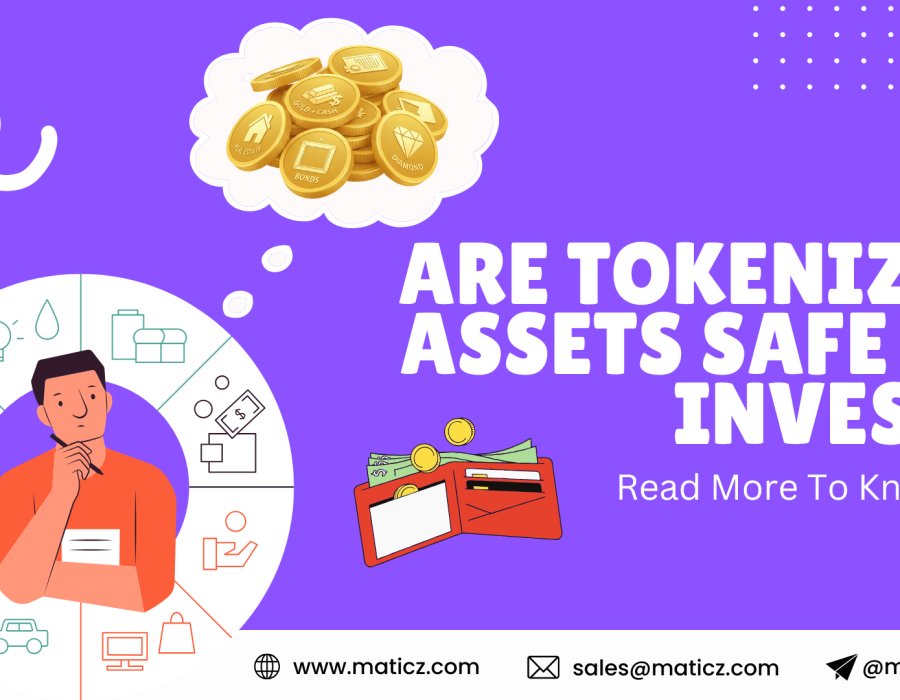We all have probably seen the headlines: “Real estate on the blockchain,” “Gold-backed tokens,” “Fractional company ownership through crypto.” The idea that physical assets like property or shares can be digitized and people can invest in fractions of them may feel futuristic. But here’s the first question every business and investor asks before jumping in: “Are tokenized assets actually safe?”
That’s a perfectly valid concern. Especially the minute you hear the words “crypto” or “blockchain”, a little alarm bell goes off. We’ve all heard stories of crypto scams, exchange hacks, and market volatility. So it’s only natural for businesses and investors to wonder whether putting real-world value like property or company equity on a blockchain is too risky.
However, as tokenization becomes more advanced and regulated, tokenized assets are proving to be not just efficient but surprisingly secure. In fact, when done right, they can be safer and more transparent than traditional investment models. Let’s unpack this in simpler terms.
What Makes Tokenized Assets Safe?
The safety of tokenized assets depends entirely on the platform where they are tokenized and the legal structure that governs it. So, how do you know whether the platform backing your asset is secure and legally sound? There are a few key factors you should always evaluate. Here’s what to look for when assessing the safety of tokenized assets.
Security Is Built-In into the Platform
When an asset is tokenized, its ownership and transaction history are recorded on the blockchain. It cannot be altered or deleted. Only authorized parties can access the data or make transactions.
Investors can verify what they own, when they bought it, and how it’s performing without relying on third-party reports or opaque systems.
As the system is designed to be decentralized, assets are protected from cyber threats and hacks.
While blockchain itself is secure, the asset tokenization platform must also follow these security best practices. If not, it could be a red flag.
Legal Framework and Compliance Matter
Blockchain takes care of the tech side, but legal protection is just as important. Without proper regulations, tokenized assets can end up in a legal gray zone, making them risky for investors.
Thankfully, many platforms now follow clear rules. Countries like Switzerland, Singapore, and parts of the U.S. have laws that cover tokenized assets, helping ensure they follow securities regulations and protect investors.
Before investing, check if the platform whether the assets are tokenized on platform regulated by the relevant authorities in your region. Platforms that follow legal standards and get audited regularly are much safer than those that don’t.
Smart Contracts and Transparency
One big reason tokenized assets are considered safe is smart contracts. These are automated agreements that carry out actions like transferring ownership and all, once certain conditions are met.
For example, in tokenized real estate, a smart contract can automatically transfer the property once payment is made. Everything is recorded on the blockchain, so all parties can see the terms and transactions. That means no hidden changes, no confusion, and less chance of fraud.
Smart contracts can also include features like escrow or dispute resolution, adding extra protection.
The Risks You Should Still Watch For
No investment is 100% risk-free, and tokenized assets are no exception. Market volatility, unclear regulations in some regions, and dependence on platform reliability are real factors to consider.
Only an experienced partner can provide a platform with strong cybersecurity, compliance tools, and transparent smart contracts, which are all involved in the asset tokenization platform development to keep investor trust intact.
So before investing, research the platform, understand the tokenomics behind the asset, and verify the legal standing of the project.
Are Tokenized Assets Safe?
In short, yes, when done right. Tokenized assets are built on some of the most secure technologies available today. Blockchain brings strong security and transparency, something traditional systems often lack. As regulations improve, legal risks around tokenized assets are also starting to shrink.
Investing in tokenized assets might feel like stepping into the unknown, but with the right precautions in place, it could be one of the safest ways. In the coming years, the potential for more secure, efficient, and inclusive investment models will only grow.
Always do your homework on the assets you are investing in. That way, you can avoid most of the common risks.





Comments